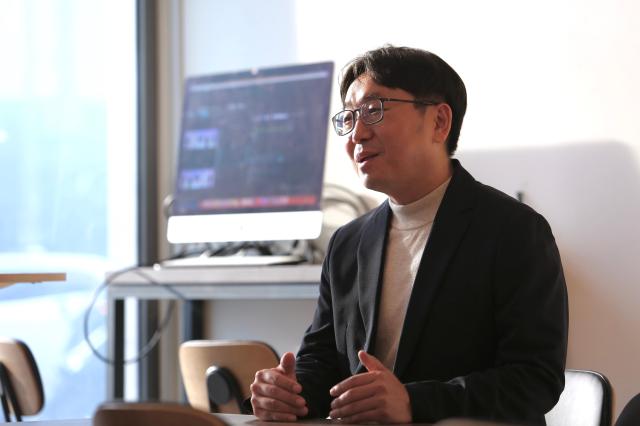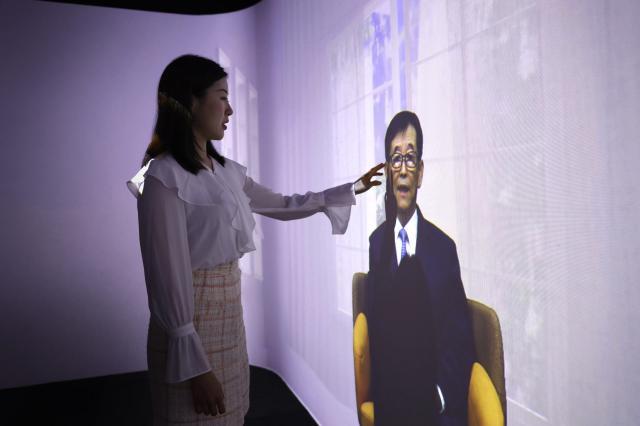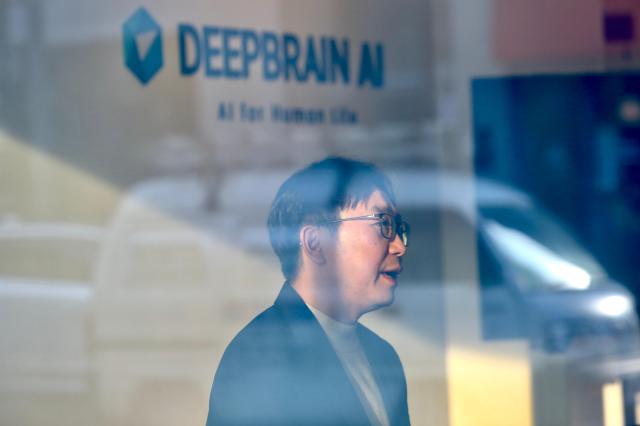
Leveraging artificial intelligence, the Korean start-up allows families to reconnect with their departed through a virtual, interactive memorial service called Re;memory.
The company launched it in 2022, initially involving the creation of digital replicas of individuals to preserve their legacies.
"We began Re;memory 1 with the concept of 'well-dying' to help people better prepare for death. We filmed them and created AI humans while they were still alive, allowing bereaved families to meet them virtually after they passed away," said Lee Jung-soo, director of business development at DeepBrain AI.
In June, DeepBrain AI released an updated version, Re;memory 2, which can recreate interactive digital likenesses of deceased individuals using only minimal data inputs.

"When we offered Re;memory 1, many people frequently asked if their deceased family members could be recreated," Lee said.
While Re;memory 1 required about three hours of filming and interviews, Re;memory 2 needs only one photo and 10 seconds of audio data.
"Our goal is to offer families a deeply personal way to reconnect with their loved ones, even in digital form," said Lee.
Building on its expertise in creating lifelike AI avatars, DeepBrain AI is focused on advancing technology for more personalized digital connections.
Founded in 2016, the generative AI startup has over 100 employees. In 2021, the company secured 50 billion won ($36.3 million) in funding with participation from the Korea Development Bank and major investors.
In 2023, it achieved a revenue of 8.1 billion won and it aims for 10 billion won this year.
Though achieving full emotional mimicry poses technical challenges, the company is committed to advancing AI's ability to replicate nuanced emotional responses.
"Our goal is a steady progression toward AI that can emulate sophisticated emotional responses, enriching interactions and bridging the gap between humans and machines."
Lee expressed optimism about the potential for AI and humanoid robots.
"More markets and business opportunities will emerge in this area. But for this vision to take shape, both technological advancement and market development are essential. As the market grows, so will demand, leading to further innovation."
DeepBrain AI also offers a range of AI solutions, exploring applications like AI-generated news anchors and digital politicians.
"We have created diverse AI personas that represent various professions, personalities and fields such as broadcasting and public service," Lee explained.
These AI humanoids have multilingual capabilities, allowing speakers from different language backgrounds to use them effectively in forums and public events.

DeepBrain AI has also developed a deepfake detection solution. Already used by government agencies, its technology analyzes pixel differences to detect manipulated media, aiming to support the industry in addressing authenticity and protection issues.
"We're considering launching a deepfake detection solution to help Korea's entertainment sector combat manipulated content, particularly targeting female artists," Lee noted.
The company disclosed its deepfake solution and shared insights during its forum on Tuesday.
DeepBrain AI currently has overseas subsidiaries in the United States and China.
The U.S. subsidiary was established in February 2022 in Palo Alto, California, while the Chinese subsidiary was founded in June 2020 in Shanghai. Its main export items include AI Studios, a global SaaS (Software as a Service) service that automatically creates videos from text input, and AI humans.
Copyright ⓒ Aju Press All rights reserved.




![[CES 2021] LG introduces virtual human Reah Keem at CES 2021](https://image.ajunews.com/content/image/2021/01/12/20210112135720669977.jpg)
View more comments